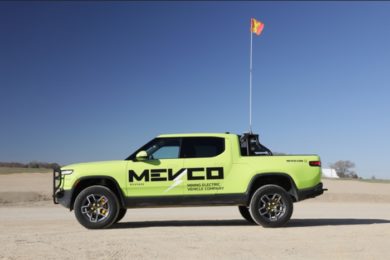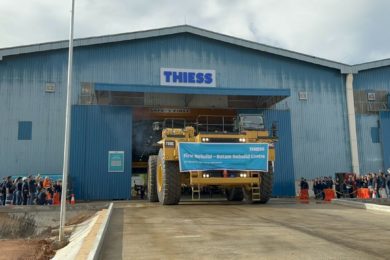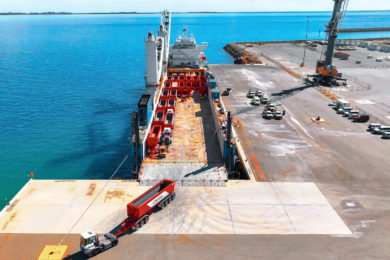Rwanda is now the world’s single largest exporter of the tantalum mineral known as coltan and the government says that is only a small portion of the country’s production capacity. In 2013, Rwanda exported 2,466,025 kg of tantalum – accounting for 28% of total 8,807,232 kg of tantalum produced globally. Total revenue from the coltan was $134.5 million, according to KT Press. These exports were made despite the effects of the US Dodd-Frank Wall Street Reform and Consumer Protection Act (DFA) that controls the purchase of minerals sourced from the Democratic Republic of Congo (DRC) and its 11 neighbours, including Rwanda. Countries subjected to DFA law contributed only 23% of global tantalum exports.
Statistics from the National Bank of Rwanda’s (BNR) indicate that in 2013 the country earned $226.2 million from minerals. Evode Imena, the State Minister in charge of minerals at the Ministry of Natural Resources said the mining sector targets $400 million from mineral exports by 2017, creating over 600,000 jobs.
Meanwhile, by October 2014, the country had exported 1,931,041 kg of tantalum worth $87.4 million. The central bank says minerals grossed $178.1 million in the same period.
Officials at the Rwanda Development Board (RDB) told KT Press that government has 22 new projects mainly in exploration worth $110.5 million in investment commitments since 2011.
Trade minister Francois Kanimba told KT Press that government is engaging banks to provide loan facilities for miners to boost exports. “The banks have been waiting for small-scale miners to have concession contracts and properly conducted turnover-assessments in order to access loans,” he said.
In response to the Dodd-Frank legislation, Rwanda has a Minerals Traceability Program where all minerals mined there are tagged from the mine-sites until they are ready to be exported. Companies sourcing minerals from Rwanda are forced to export only those that are conflict-free.
Safari Eria, the Operations-Manager of Wolfram Mining Processing Ltd said, “We had already been tagging our minerals…all our minerals are exported with certificates of origin to ensure traceability.”
Local miners have been urged to embrace modern mining ways to fully benefit from the mining sector. The call was made by Imena during celebrations for Mining Day in Burera District.
The day which was organised by the management of Gifurwe Wolfram Mining and Processing Ltd brought together officials from the mining sector, miners and several government officials.
Imena said while Gifurwe mining and processing has made progress, more efforts are needed to improve the way minerals are exploited.“As you work together, make sure you always improve the way you extract minerals through sharing skills,” he said.
He stressed the need to develop the mining sector from traditional to modern systems.
“You have to be role models and train others on how to better this business. There are targets you have set but you have not implemented them. We want you to increase productivity threefold,” added Imena.
He commended the sector’s role in improving the welfare of local residents.
Jean Malic Kalima, the Managing Director of Wolfram Mining and Processing Ltd, said they had developed the sector over years and were optimistic to keep improving it.
He said miners are well catered for and get basic necessities such as insurance cover.
Kalima said the company was commited to increasing productivity to counter challenges presented by the current drop in global mineral prices.
Gifurwe Mining was idle and unexploited until 2006 when it was taken over by the company.
Over 1,300 people, including women, are directly employed in the mine. Currently, the company gets between 9 and 15 t of minerals from the site per month, but the management is optimistic it will increase as move are made to improve the working system.
Cassiterite, coltan, and wolfram are Rwanda’s principle minerals. The sector directly employs more than 33,000 people, mostly rural dwellers who depend on small-scale mining for a living.
The value of mineral exports decreased by 18% to $191.3 million this year from $226 million in 2013, owing to low prices on the international market for Rwanda’s traditional minerals.
The figures exclude the months of November and December – with government projecting to reach $207 million by the end of the year.
Volumes increased, however, by 14.3 per cent to 8,046 t in 2014 from 7,000 t exported in 2013.









